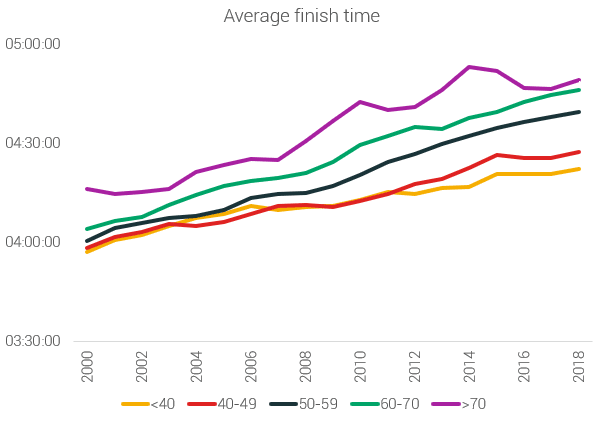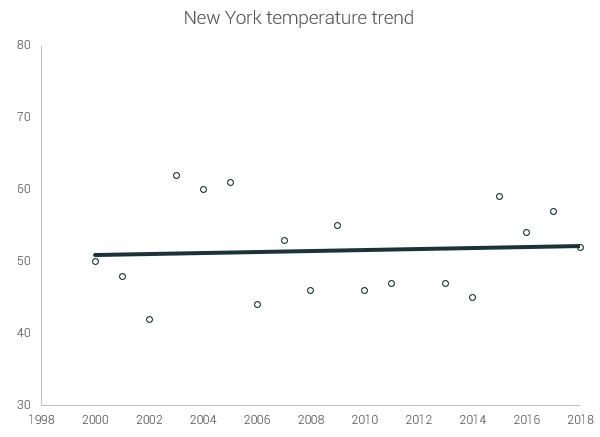How Much is Climate Change Slowing Down Runners
We’ve analyzed 19.6 million marathon results from over 30,000 marathons. In our new study, we concluded that the world is getting slower. In this article, we look at how the slow down is affected by increasing temperatures and the weather in general.
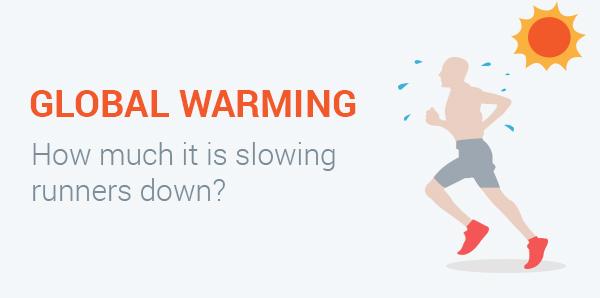
What our analysis shows is that:
- The average runner adds 1 minute 25 seconds to his/her marathon finish time for every additional degree F
- The average runner adds 6 seconds a year due to the general temperature trend.
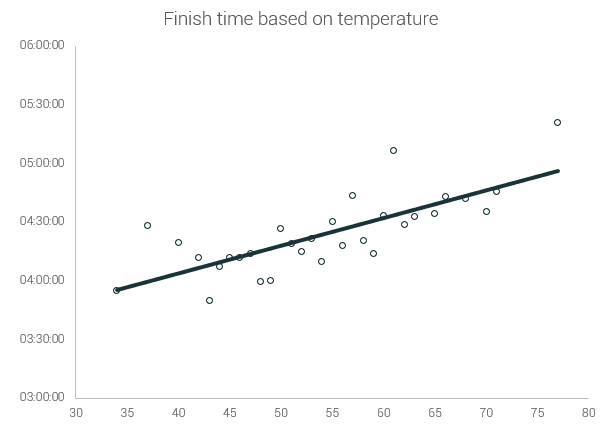
Global temperature increase
We used the data from The National Oceanic and Atmospheric Administration to estimate the rate at which the average annual temperature is changing. We established that the average yearly temperature is changing by 0.07 degrees Fahrenheit. This might seem like a negligible change, but it has its effects.
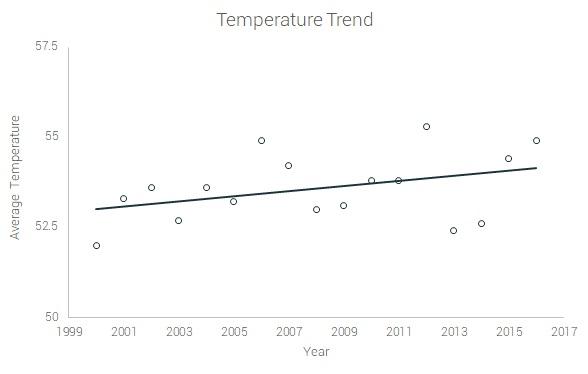
Temperature and results
We saw that there is a clear trend that, finish times get slower with the increase in temperature. It turns out that the temperature during a race is responsible for over 30% of the variance in finish times. This means that climate is a huge factor in runners finish times.
But the slow-down is not due only to global warming - the distribution of races at different temperatures has changed. With more events popping up around the world, we see more and more races held at high temperatures.
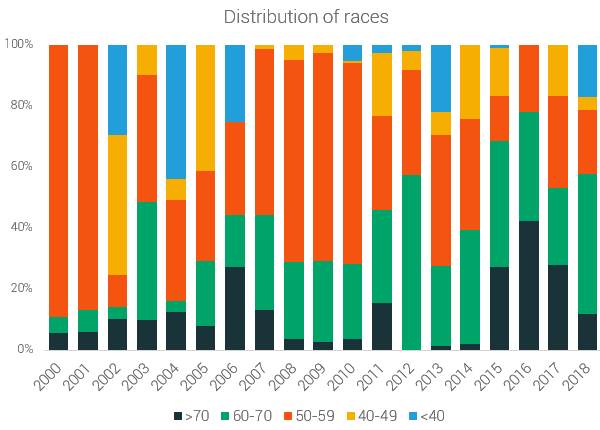
From the chart above we see that there are more and more races held at temperatures above 60 degrees, which has an impact over the finish times.
As we can see there is a clear differentiation in the average finish times based on the temperature when the race was held.
What is also noteworthy here is that the weather is not the only factor, we see that participants are getting slower in each temperature range and that they are getting slower at a higher rate in the warmer races.
Special cases
We also decided to dig deeper into some of the biggest races worldwide and to see, how the weather is affecting the runners.
Chicago Marathon
The temperature in Chicago is on the rise - the average temperature at the event has risen by 5 degrees F in the last 18 years. It also has a big variability - between 35 and 80 degrees.
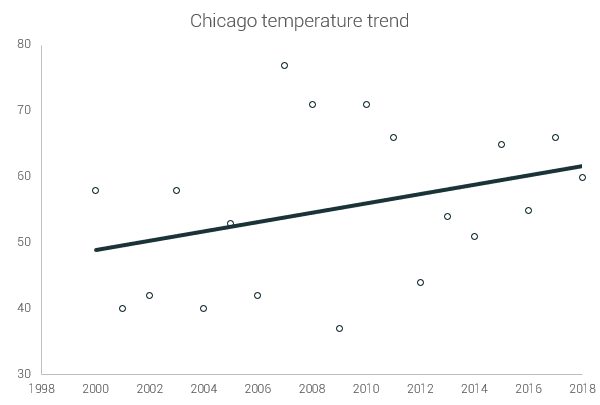
But the trend between finish time and weather is still clear.
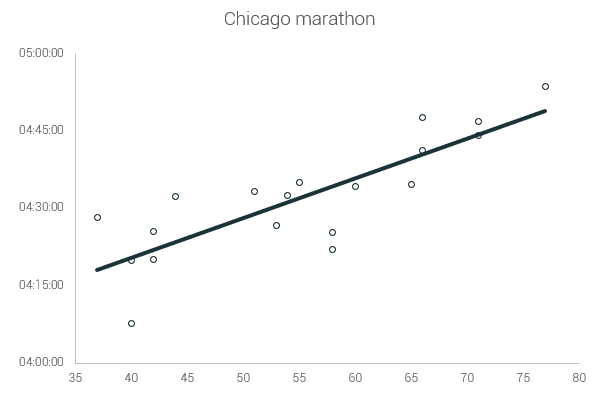
And for Chicago temperature is a great predictor for the marathon finish times, with a very small margin of error.
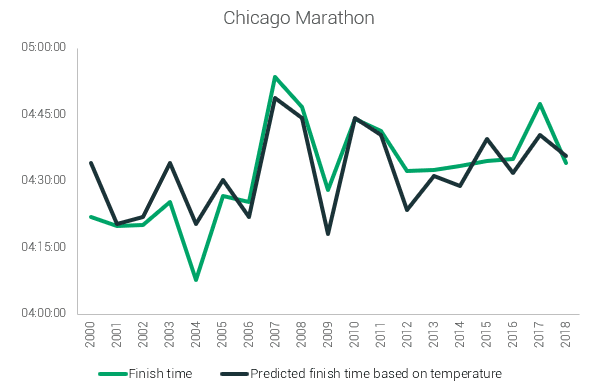
London Marathon
In London, the temperatures on race day vary between 40 and 60 degrees F.
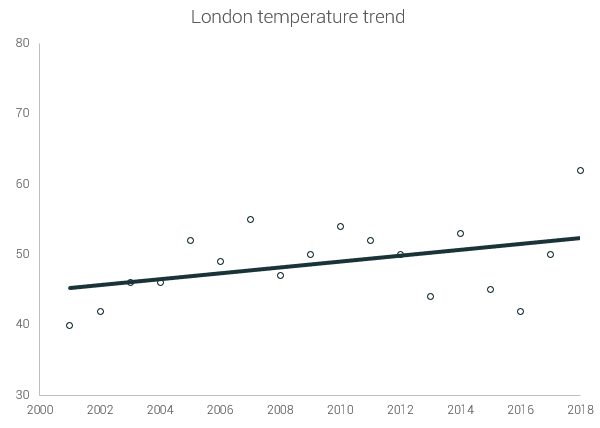
And the relationship between temperature and finish time is strong. Even if the temperatures are not too volatile, they exert a significant effect.
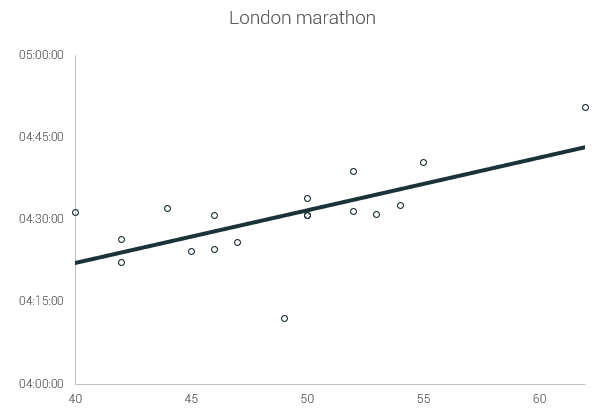
And the predictions we can make about the finish times based on the weather have a small margin of error.
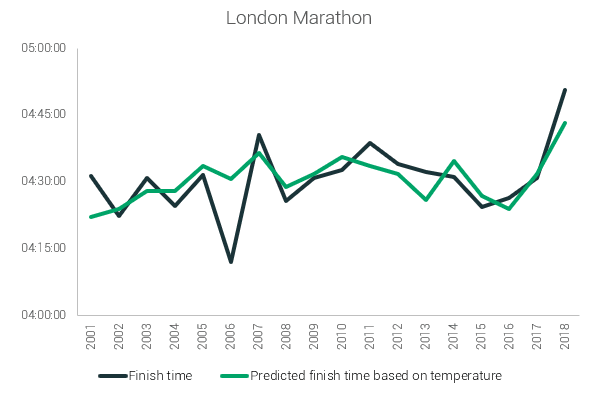
Boston Marathon
The temperatures at Boston marathon are quite volatile. They range between 40 and 75 degrees F.
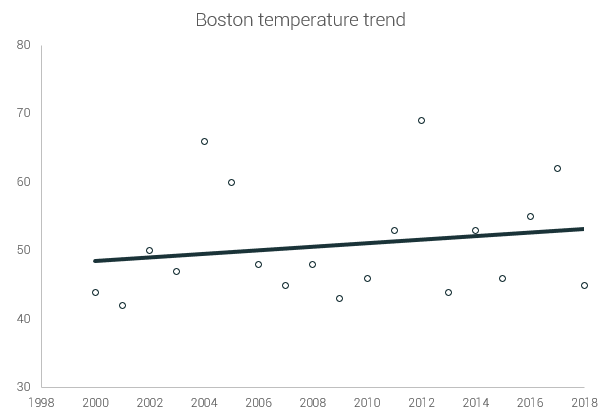
As we know the selection process for the Boston marathon is grueling. But still even the best runners are still human, and the weather affects them strongly.
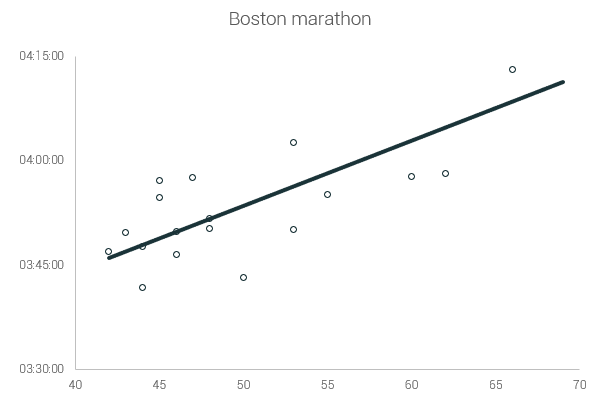
And here we can see, that the more prepared the runners, the more weather is the thing that is the outside force shaping their performance. Here we see that the predictions based on temperature are quite accurate.
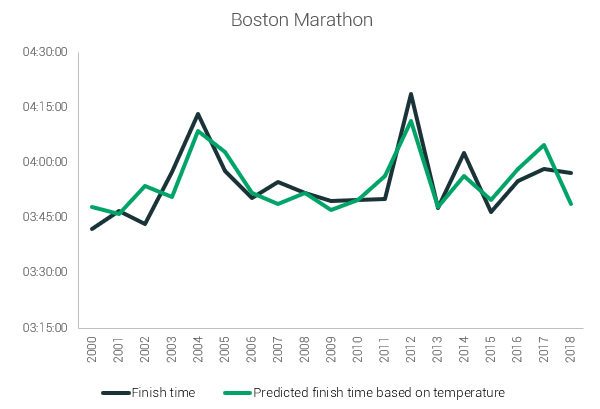
New York Marathon
In New York, the temperature is slowly rising, but it's also important to note that there is a huge variation in the temperature on the date of the event. The temperatures range from 40 to 70 degrees. And there is a strong relationship between finish time and weather.
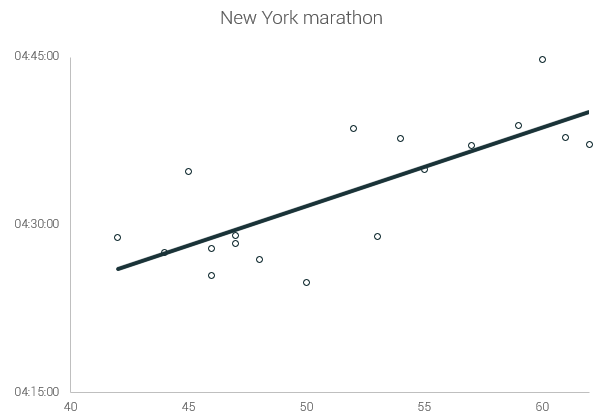
Berlin Marathon
In Berlin, the temperature is actually declining. And it is contained in the interval between 50 and 70 degrees F.
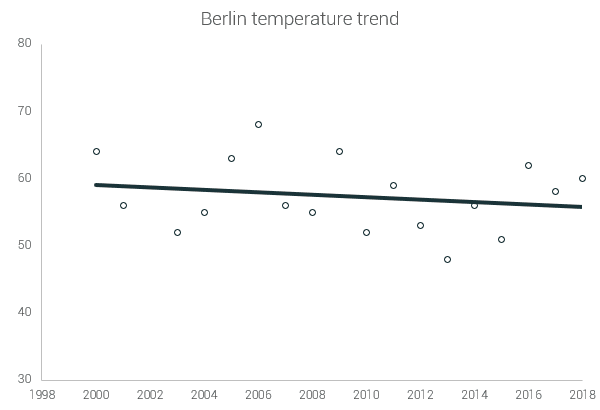
Even, though the temperature here fluctuates in a smaller range, it still has a strong impact on the performance of the runners, as it was for Londoners.
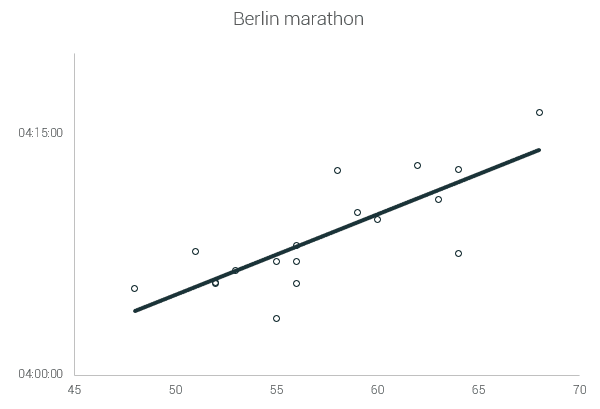
And we see here as well that the temperature on race day has s huge impact on the performance of the runners.
Marine Corps Marathon
The temperatures on race day vary between 45 and 70 degrees F.
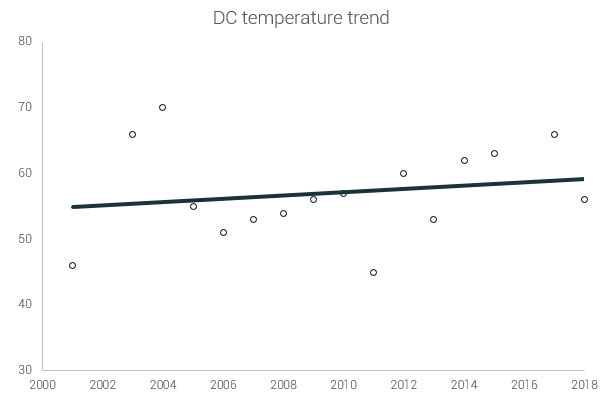
And here again, we see that the trend is clear - the warmer the race day, the slower the average runner.
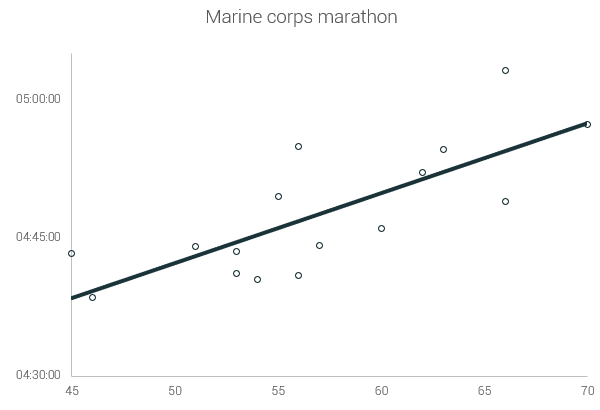
LA Marathon
The temperatures for the LA Marathon vary between 50 and 80 degrees. And it is also one of the hotter races.
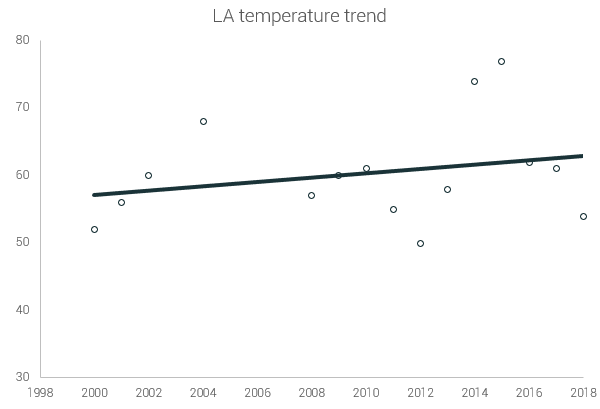
Here we see that the participants are slower than the average runner. And that still the hotter it is, the slower the runners are.
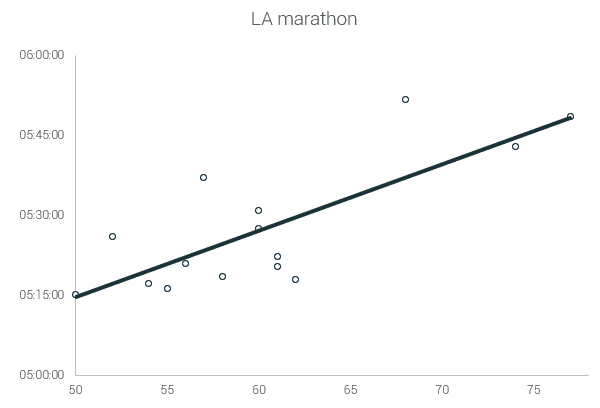
Vienna Marathon
The temperatures in Vienna move is a narrow range - between 48 and 68 degrees. With most races at around 55 degrees.
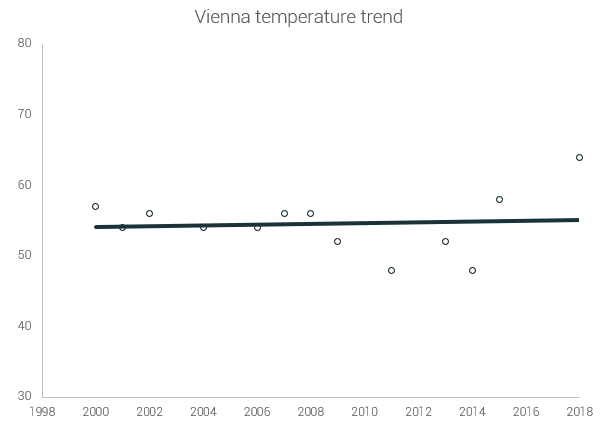
This helps Vienna runners to show more consistent results. But still, we see that the outside temperature plays a role.
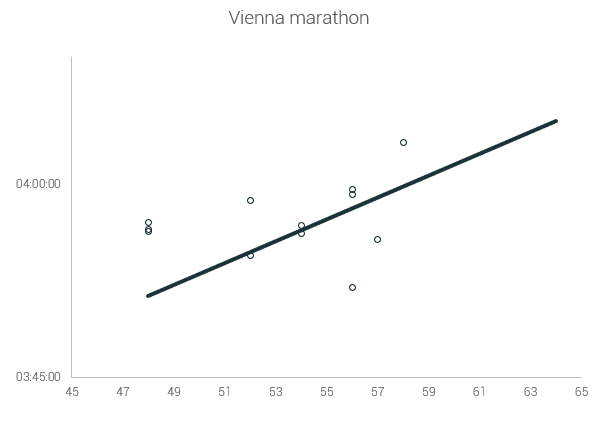
Amsterdam Marathon
Amsterdam marathon is one of the cooler races - with temperature ranging between 40 and 60 degrees.
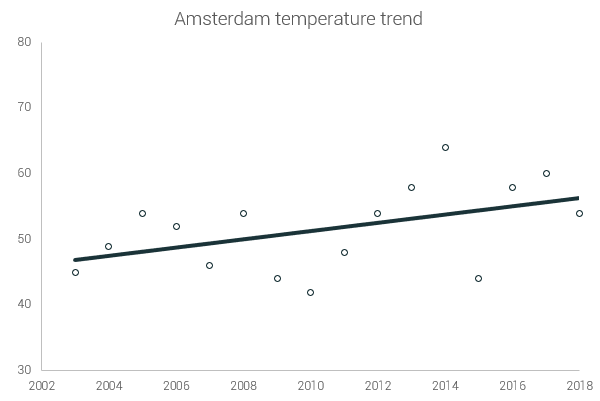
And here as well we see that the best results are obtained at around 42-43 degrees F, which is the optimal running temperature.
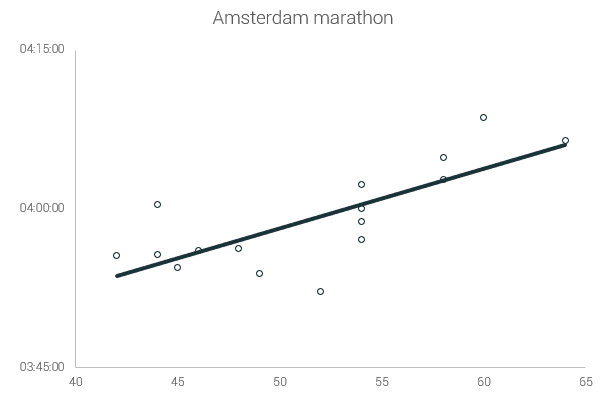
About the researchers
The study is a product of collaboration between Paul Ronto and Vania Andreeva Nikolova. Ronto is an avid runner with 6 marathons under his belt and RunRepeat's Content Director. Nikolova holds a Ph.D. in Mathematical Analysis.
Finding the right sports footwear
RunRepeat is dedicated to helping you find the right running shoes and athletic footwear for the sports you're passionate about. It's important to get shoes that perform well for your specific needs. Brands like New Balance, Nike, Adidas, Saucony, and ASICS have a wide variety of options designed for specific needs from road running shoes and trail running shoes, to footwear for overpronation and shoes for added stability.
We also review a wide variety of shoes for other sports like basketball shoes, hiking boots, and sneakers.
Use of content
- We are happy to give interviews on the topic at any time. For this purpose reach out to Paul at paul@runrepeat.com.
- For web usage, any minor text sections, all data, and all graphics may be used as long as a reference is added to this original piece.
- For print usage, reach out to paul@runrepeat.com.
Feel free to use any material from this page, we just ask that you refer, and link back to this original source.
